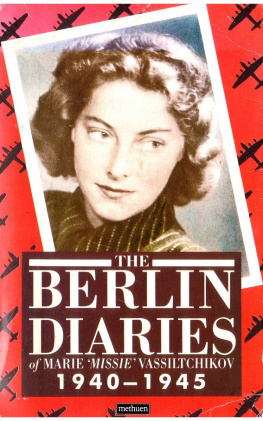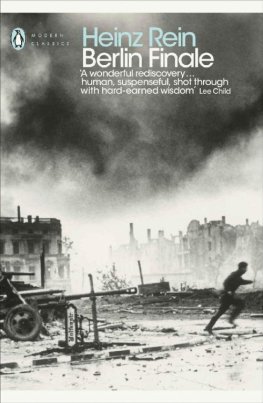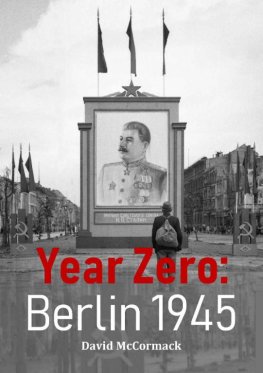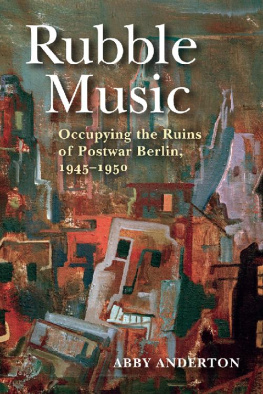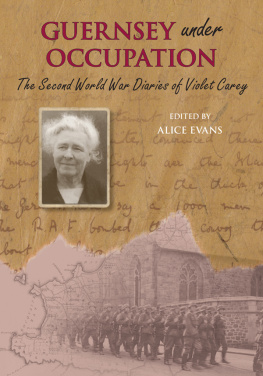JANUA Y TO DECEMBER 1940
schloss friedland Monday, i January Olga Pckler, Tatiana and I spent the New Year quietly at Schloss Friedland. We lit the Christmas tree and tried to read the future by dropping melted wax and lead into a bowl of water. We expect Mamma and Georgie to appear any minute from Lithuania. They have announced their arrival repeatedly. At midnight all the village bells began to ring. We hung out of the windows listening - the first New Year of this new World War.
When World War started on i September 1939, Lithuania (where Missie's parents and brother George lived), was still an independent republic. However, under a secret protocol to the Soviet-German Boundary and Friendship Treaty of 29 September (which complemented the Molotov-Ribbentrop Non-Aggression Pact of 23 August) it had been included in the U.S.S.R. 5 sphere of influence and after 10 October a number of strategically located towns and airfields were garrisoned by the Red Army. Ever since, Missie's family had been preparing to escape to the West.
Berlin Wednesday, 3 January We departed for Berlin with eleven pieces of luggage, including a gramophone. We left at 5 a.m. It was still pitch dark. The estate manager drove us to Oppeln. Olga Pckler has lent us enough money to live for three weeks; by that time we must have found jobs. Tatiana has written to Jake Beam, one of the boys at the American Embassy she met last spring; our work at the British Legation in Kaunas may be of some help to us there.
Washington was to maintain an Embassy in Berlin until 11 December 1941, when, following Japan's attack on Pearl Harbor, Hitler declared war on the U.SA.
The train was packed and we stood in the corridor. Luckily, two soldiers
had helped with the luggage, as otherwise we would never have been able to squeeze in. We arrived in Berlin three hours late. As soon as we reached the flat the Pcklers have kindly allowed us to stay in temporarily, Tatiana started telephoning friends; it made us feel less lost. The flat, in the Lietzen-burgerstrasse, a street running parallel to the Kurfrstendamm, is very large, but Olga has asked us to do without outside help on account of the many valuable contents, so we are only using one bedroom, a bathroom and the kitchen. The rest is shrouded in sheets.
Thursdayy 4 January We spent most of the day blacking out the windows, as no one has been here since the war started last September.
Saturday , 6 January After dressing, we ventured out into the darkness and luckily found a taxi on the Kurfrstendamm which took us to a ball at the Chilean Embassy off the Tiergarten. Our host, Morla, was Chilean Ambassador in Madrid when the Civil War broke out. Although their own government favoured the Republicans, they gave shelter to more than 3,000 persons, who would otherwise have been shot and who hid out in the Chilean Embassy for three years, sleeping on the floors, the stairs, wherever there was space; and notwithstanding great pressure from the Republican Government, the Morlas refused to hand over a single person. This is all the more admirable considering that the Duke of Albas brother, a descendant of the Stuarts, who had sought refuge at the British Embassy, was politely turned away and subsequently arrested and shot.
The ball was lovely, quite like in pre-war days. At first I feared I would not know many people, but soon I realised that I knew quite a few from last winter. [Missie had visited Tatiana in Berlin in the winter ofigj8-igjg.] Among those we met for the first time were the Welczeck girls, both very beautiful and terribly well dressed. Their father was the last German Ambassador in Paris. Their brother Hansi and his lovely bride Sigi von Laffert were also there, and many other friends, including Ronnie Clary, a very handsome boy, just out of Louvain University, who speaks perfect English-which was rather a relief, as my German is not quite up to the mark yet. Most of the young men present are at Krampnitz, an officers tank training school just outside of Berlin. Later, Rosita Serrano [a popular Chilean chanteuse] sang, addressing little Eddie Wrede, aged nineteen, as Bel Ami, which flattered him enormously. We had not danced for ages and returned home at 5 a.m., all
piled in the car of Cartier, a Belgian diplomat, who is a friend of the Welczecks.
Sunday , 7 January We are still searching painfully for jobs. We have decided not to ask any friends to help, but to turn directly to business acquaintances.
Monday , 8 January This afternoon, at the American Embassy, we had an appointment with the Consul. He was quite friendly and at once gave us a test, which rather unnerved us, as we were not mentally prepared for it. Two typewriters were trotted out, also shorthand pads, and he dictated something at such speed and with such an accent that we could not understand all he said; worse, our two versions of the letter he dictated turned out not to be identical. He told us he would ring us up soon as there were vacancies. We cannot wait long, however, and if something else turns up meanwhile, we will have to accept. Unfortunately, as most international business is at a standstill, there are no firms here in need of French- or English-speaking secretaries.
Thursday , January My twenty-third birthday. Sigi Laffert, Hansi Welczecks fiancee, came for tea. She is strikingly pretty and many describe her as the prototype of the German beauty. In the evening Reinhard Spitzy took us to the cinema and then on to a night club, Ciros, where we drank champagne and listened to the music; there is no longer any dancing in public.
Saturday , 13 January Mamma and Georgie arrived at crack of dawn. I had not seen Georgie for over a year. He has not changed, is full of charm and is very nice to Mamma, who looks very ill and run-down. In Lithuania, which is gradually becoming Sovietized, they had been through unnerving experiences. It was high time the family left. Papa, however, has stayed on, as he has a big business deal pending.
Sunday , 14 January We have installed Mamma and Georgie in the Pckler flat so that they need not spend money on a hotel. As it is, they only have forty dollars between them. As we still have no jobs, the financial situation is catastrophic. They are thinking of staying on here. This would be a mistake: it is very cold, there is little to eat and the political situation is more than shaky. We are trying to convince them to go on to Rome, where Mamma has many friends and where there is a large White Russian emigre colony. Here she would be lonely, for apart from the foreign embassies, whose numbers are fast dwindling as the war spreads like an oil-patch, there is little family life left. Berlin is nowadays a young bachelors town, full of our contemporaries, who either are in the armed forces or work all day in offices and then end up in night clubs. In Rome Irena has already setded down nicely; life would be easier, if only for the climate, and as soon as we begin to work, we could send them money regularly.
Monday , /5 January A new government decree: no baths excepting on Saturdays and Sundays. This is quite a blow, as one gets amazingly dirty in a big town and it was one of the few ways to be warm.
Wednesday 17 January We stay at home a lot - to be more with the family. Mammas nerves are in bad shape; all she has been through since Alexanders death is beginning to tell.
Thursday, 18 January Georgie has an enormous appetite and our food supplies - we had brought butter and sausage from Friedland - are dwindling fast. This is another argument in favour of their continuing on to Rome. Here, he would get rapidly under-nourished, whereas Italy, thank heaven, is still out of the war and there is no food rationing.
Friday i g January Kada Kleinmichel is working with the English department of the D.D. She may be able to find me a job there too. We are getting rather desperate, for we have not heard from the American Embassy and yet cannot harass them. We are very broke and with the arrival of the family, what money we had has dwindled fast. We went to see a man at I. G. Farben, but they need people who can do German shorthand perfectly and that is not our forte.
Next page
